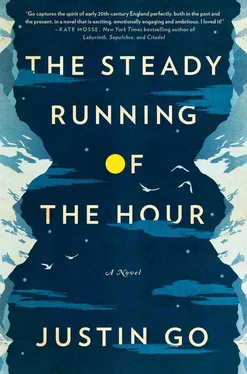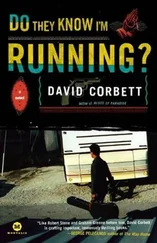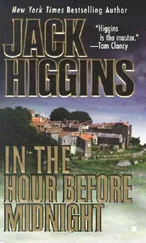— There has to be some ending.
— There doesn’t. Même si—
Mireille breaks off in frustration, shaking her head. She looks down the empty street.
— Even if there’s an ending to all this, maybe it’s lost. Maybe there’s a reason it ought to stay lost. And even if you’re lucky enough to find an ending, it might not be the ending you wish for.
— I’ve been lucky. I found the letters. I found you.
— And I’m asking you not to go to Berlin. Stay here and we can go back to Paris next week.
I stand in the street, not knowing what to say. Mireille stops before the window of a small mercerie, her back to me as she stares at the bundles of black and cream-colored lace.
— Just give me a month, I say. Then it’ll all be over.
She shakes her head and walks on ahead of me. I follow after her.
— It’s not because I care so much about you, she says. You’re no one. You don’t understand what’s going on around you, or what any of it means. But what bothers me is that every amazing thing that happens to you, you’ll just get on a train and go somewhere else, where you expect another amazing thing to happen.
— I don’t expect that.
— You expect that, she continues, but that’s not life. C’est un conte . A fairy tale. Forget about the lawyers and the money. They’re never going to give you anything. And forget about these dead people and their story, it’s probably not even true. What about our story? What were the chances that we would meet, that you would choose that bar in Paris, for no reason at all, and that I would take the seat beside you? Isn’t that enough? Or are you only going to care about it in ten years or a hundred years, when I’m gone and you can’t do anything about it?
— I didn’t know you felt that way—
I reach for her shoulder, but she walks on a step ahead.
— I don’t feel that way, she counters. But even if I did, you’d still go to Berlin.
— I’ll be back. I’ll come right back here when I’m done.
Mireille stops in the street and turns to me. Her face is streaked black with running mascara. She wipes her face with her sleeve, her chin raised high.
— No, she says. I’m sure you won’t.

30 December 1916
Lake Ejen
Dalarna, Sweden
Eleanor always woke first. Dawn came late here, a dim haze of white in a world already carpeted in deep snow. And Eleanor rose instinctively at the first inching of day, as if her body were trained to extract the maximum of light from the grim Nordic winter.
The problem was not that Imogen slept late. It was that she stayed in bed. The days were short and bleak, and when her sister did not rise until noon it left her less than three hours’ paltry daylight. Such gloom would sap anyone’s spirit. So in the morning Eleanor would cross the hallway to find Imogen lying with her eyes already open in a vacant stare, her face turned toward the slim gray band of light slipping between the baize curtains. Eleanor would part the curtains; Imogen would continue looking where she had been looking, her gaze now passing through the squares of leaded windowpanes.
— Darling, Eleanor would say. You ought to just open the curtains yourself.
Then Eleanor would lean over her sister and kiss her lightly upon the forehead.

It was not only Leksand that was wholly alien to Imogen. It was her own life. It seemed a sentence levied for some private crime: an entire winter in a rough cabin at the northern extremity of civilization, quarantined from all society save her sister and an elderly Swedish housekeeper. Not that Imogen was bothered by the house, the snow, the isolation. She had often dreamed of such a life. What troubled her was how she had come to it.
No matter how often Imogen retraced the course of events that brought her here, she could never detect the aberration she sought, the mistake that had condemned her to this calamity — an existence that was ghastly chiefly because it could not be redirected. She could not go back. But if only she knew her error, she might find the thread that had been pulled to unravel her; perhaps then she could use that knowledge to repair everything. Imogen recalled an article she had read about the ingenious antivenin of Brazilian physicians, proof against the bites of pit vipers or adders: cures deposited in corked vials in a laboratory, crafted arcanely from poisonous venom. Where was the vial for her own condition, the cure that would swoop her back to six weeks ago, offer her a chance to replay the scene where a few missteps had derailed everything?
Still the unreality of Leksand bloomed on for Imogen, thriving as she refused the coming of each new day, lengthening as the icicles draped off the shingled roof. This was her life now, and yet she would not have it — the low sloping pineboard ceiling; Eleanor donning overboots and mackintosh downstairs to light the fire in the barn, as Mrs. Hasslo filled the kettle from a great pitcher; the bilious drifts of snow gathering and gathering around the house, obscuring the lush grass that was all Imogen remembered from the summer visits of her youth.

For Eleanor it was different. She had consolations for her hardships. There was the merit she found in her own sacrifice, for Eleanor was a generous person and it pleased her to sacrifice for the sister she had always protected. And when all of Europe was suffering so conspicuously, Eleanor wished to take her small share of the burden: six months sequestered in the social wilderness of a Scandinavian winter, then the charge of a child that was not her own.
To Eleanor the child seemed equal parts burden and gift. For though she had long wanted a child of her own, the likelihood of that had grown dimmer with each passing season, the physicians’ advice more grasping and feeble. With his instinctive practicality Charles had accepted at once the idea of Imogen’s child, dashing off a series of letters from Palestine with long and reasoned arguments, sensing in the plan the nearest resolution to two years of frustration. But perhaps he had accepted it too easily, for Eleanor remained unconvinced. She knew it was unnatural and she could not forget that. There was a sense of wrong that went beyond Imogen’s reluctance, beyond the pageantry of lies they had fed to Charles’s family about the pregnancy.
Eleanor had lost something she would never get back — her own child, the formless presence that had seemed real so often that she had never been able to give up on it, no matter what the doctors said. Only now had she released that presence. And though Eleanor’s intellect understood it had not been a trade, to her heart it seemed an unholy bargain, a sin she felt in a thousand nerves, in a hundred subtle instances every day. She felt it as she watched and tried not to watch Imogen’s body changing and swelling; she felt it as she imagined and fought against imagining the forming child that would look like Imogen or like Ashley, perhaps even a bit like her, but never Charles. At times this uneasiness was more than she could bear and she prayed the taint would not survive the child’s birth, not stay with it over the years. But she could not be sure.
All this drove Eleanor to her final consolation — her work. She had always longed to take a creative retreat in the country, but like her sister she tended to distraction, toward the metropolis with its constant diversions of luncheons and exhibitions and lectures. There were no distractions here. The sisters shared the society only of Mrs. Hasslo, the housekeeper, and Dr. Lindberg, the village physician. The nurse would not arrive from England until the end of January. Occasionally Eleanor saw the grocer, but he was a taciturn man and Eleanor was too embarrassed by her crude Swedish to make much conversation. Eleanor had visited relatives in Stockholm exactly once since they had come to Sweden, and she had done this only to preempt any of them coming up to Leksand and discovering Imogen’s condition. Not that anyone wished to come.
Читать дальше













